20 – 22 September 2023. Tropentag 2023 - Competing Pathways for Equitable Food Systems Transformation: Trade-Offs and Synergies
The Tropentag is a development-oriented and interdisciplinary conference. It addresses issues of resource management, environment, agriculture, forestry, livestock, food, nutrition and related sciences in the context of rural development, sustainable resource use and poverty alleviation worldwide.
The annual interdisciplinary conference on research in tropical and subtropical agriculture, natural resource management and rural development (Tropentag) is jointly organised by the universities of Berlin, Bonn, Göttingen, Hohenheim, Kassel-Witzenhausen, ZALF e.V. (all Germany), Ghent University (Belgium), Czech University of Life Sciences Prague (Czech Republic), BOKU Vienna (Austria), and the Council for Tropical and Subtropical Research (ATSAF e.V) in co-operation with the GIZ Fund International Agricultural Research (FIA).
Tropentag 2023 was organised as a hybrid conference by Leibniz Centre for Agricultural Landscape Recearch (ZALF), Germany, in cooperation with the Humboldt-Universität zu Berlin, Germany.
IFPRI was featured as the CGIAR center of focus at this year’s Tropentag, an annual interdisciplinary conference on research in tropical and subtropical agriculture, natural resource management and rural development.
- See the IFPRI PROGRAM
- The conference programme booklet can be downloaded as pdf
Extracts of the programme
20/09 Welcome addresses and opening
- Cem Özdemir, Federal Minister of Food and Agriculture, Germany
- Julia Von Blumenthal, President of Humboldt-Universität zu Berlin, Germany
- Frank A. Ewert, Scientific director of ZALF Müncheberg, Germany
- Dagmar Mithöfer (HU Berlin) and Stefan Sieber (ZALF), heads of organising committee
- Folkard Asch, ATSAF / University of Hohenheim
20/09 Keynote speeches and discussion
- Johan Swinnen, Director General IFPRI; CGIAR Managing Director Systems Transformation Science Group, USA
Achieving resilient food systems (Abstract) - Jody Harris, World Vegetable Centre, Thailand
- Catherine Nakalembe, University of Maryland, USA
20/09 Advancing a demand-driven research portfolio to improve water, land and food systems in the Global South
CGIAR/Systems Transformation Action Area
- CLAUDIA RINGLER, HUA XIE, RUTH MEINZEN-DICK, NICOS PEREZ:
The role of groundwater as an accelerator of agricultural transformation: Insights from the CGIAR initiative on NEXUS Gains
Abstract (ID 994 ): Web-Version (html) : Print Version (pdf)
- MARCELA QUINTERO, VERONIQUE ALARY, SARAH FREED, AYMEN FRIJA, LISA FUCHS, SARAH JONES, CHRISTINE LAMANNA, GUILLERMO ORJUELA, SIMONE STAIGER, CLAUDIA TRISTAN:
Leveraging agroecological transitions: Experiences from the CGIAR initiative on agroecology
Abstract (ID 995 ): Web-Version (html) : Print Version (pdf)
- ANA MARIA LOBOGUERRERO, JON HELLIN, SABRINA ROSE:
Applying a social equity approach to transformative adaptation: Minimising trade-offs between environmental and socio-economic outcomes
Abstract (ID 996 ): Web-Version (html) : Print Version (pdf)
- MARY EYENIYEH NGAIWI, NICOLAS HOYOS, ROBERT ANDRADE, MARIA DEL MAR ESPONDA, ELIZA VILLARINO, AUGUSTO CASTRO-NUNEZ:
Navigating climate mitigation in global food systems: Insights from CGIAR
Abstract (ID 997 ): Web-Version (html) : Print Version (pdf)
- JAWOO KOO, ANDREA GARDEAZABAL, JONATHAN STEINKE:
Responsible digital innovation in agri-food systems: ethical and equitable transformation for sustainable agriculture
Abstract (ID 1005 ): Web-Version (html) : Print Version (pdf)
- NICHOLAS MINOT:
CGIAR initiative on rethinking food markets: An overview and an example of preliminary results from Ethiopia
Abstract (ID 1006 ): Web-Version (html) : Print Version (pdf)
- HAUKE DAHL:
The stability-and-peace accelerator: scaling food, land and water systems innovations in fragile and conflict-affected settings
Abstract (ID 1010 ): Web-Version (html) : Print Version (pdf)
- CéLINE TERMOTE, INGE BROUWER, MARK LUNDY:
The retail food environment as driver of consumer choices and source of decent livelihoods
Abstract (ID 1009 ): Web-Version (html) : Print Version (pdf)
21/09 Research cooperation for sustainable development
Federal Ministry of Food and ABMBF/DLR session
- KIRSTEN KIENZLER, MIKHAIL RUSAKOV:
Research cooperation for sustainable development (BMBF/DLR session)
Abstract (ID 1007 ): Web-Version (html) : Print Version (pdf)
21/09 Payments for Ecosystem Services: Win-Win Solutions?
BMZ/GIZ
(Abstract)
- Johan Swinnen, Director General IFPRI; CGIAR Managing Director Systems Transformation Science Group
- Claudia Ringler, Director, Natural Resources and Resilience (NRR), IFPRI
- Payments for ecosystem services: win-win solutions?
Abstract (ID 993 ): Web-Version (html) : Print Version (pdf)
- The impacts of groundwater development on agriculture food system in Senegal: A general equilibrium assessment (Abstract) - Angga Pradesha, Senior Scientist, IFPRI
- A conceptual framework of living labs for people: Fostering innovations for low-emissions food systems and social equity (Abstract) - Ryan Nehring, Associate Research Fellow, IFPRI
21/09 Leveraging human rights-based action towards equitable food systems: A panel discussion (BMEL/BLE session)
Federal Ministry of Food and Agriculture (BMEL)
- MAJA CLAUSEN, DR. LISA JäCKERING:
Leveraging human rights-based action towards equitable food systems
Abstract (ID 990 ): Web-Version (html) : Print Version (pdf) 
In this BMEL-Session, the funding instruments that support a rights-based transformation of food systems were presented and experiences shared by an expert panel. Thus, revealing recommendations to drive systemic change. Leveraging human rights-based action towards equitable food systems
Abstract (ID 990 ): Web-Version (html) : Print Version (pdf)

- Mrs. Patricia Kiprono, German Institute for Tropical and Subtropical Agriculture (DITSL)/Center for Research and Development in Drylands (CRDD), project ‘Enhancing women’s agency in navigating changing food environments to improve child nutrition in African drylands (NaviNut)’.
- Sarah Luisa Brand, FAO
- Dang To Kien, Social Policy Ecology Research Institute (SPERI), Vietnam, project ‘Nutrition Intervention Forecasting and Monitoring (NIFAM)’.
- Dr. Andreas Gramzow, GFA Consulting Group GmbH.
Pre-conference workshops
19/09 Pre-conference workshops
Humboldt-Universität Berlin + Leibniz-Institute for Agricultural Landscape Research + Université d’Antananarivo, Madagascar
Humboldt-Universität Berlin + ZALF, Germany
AGRINATURA + YPARD
TH Köln-Cologne University of Applied Sciences, Germany + University of Ghana, Ghana
European project REFFECT AFRICA
ETH-Zurich, Switzerland, IFAD, TMG Research, Swiss TPH, FAO), VdB Consulting
- This workshop intended to incentivize the action research into bridging the conceptual framework of agroecology with the one of the food systems. In cities of the global South agroecology can be a crucial concept to foster access to nutritious and diverse food, as well as to reduce the risks associated with the excessive use of pesticides.
- As an entry point for the workshop, the conceptual framework of agroecology in a food system approach was presented.
- Further, it drew from case studies from different cities on how to evaluate the match between needs of city population in terms of nutritious and fresh food and local agriculture capacities to contribute to those needs.
- Contributions were based on existing projects and networks, like the SDC Nutrition in City Ecosystems (NICE) project (with interventions in 6 secondary cities of Bangladesh, Kenya, and Rwanda), the Green Cities initiative at FAO, TMG’s Urban Food Future programme, and European projects.
World Agroforestry Center + University Hohenheim
IFAD
20/09 Pre-conference workshops
Alliance of Bioversity International and CIAT
Welttierschutzstiftung (WTS), Berlin
IDOS (German Institute of Development and Sustainability), Bonn
Workshop 16: Sustainable livelihoods and agrarian studies: what are the connections? An informal workshop led by Ian Scoones
Institute of Development Studies at the University of Sussex, UK
Workshop 17: Workshop 17: Ecosystem services in silvopastoral systems across regions – trade-offs or synergies?
Universidade Federal de Vicosa, Brazil + Hochschule Rhein-Waal, Germany
University of Hohenheim, Stuttgart
This workshop clarified the potential and limitations of co-existing dominant narratives for sustainable agriculture in Africa. On the one hand, addressing challenges facing crop and livestock production on the continent has led to a proliferation of paradigms and practices for which a cohesive pathway of action is unclear. On the other hand, there are many proven, successful concepts. The workshop interrogated and deliberate on questions including: \
- Under what conditions do agroecological practices compliment sustainable production without undermining socio-economic and cultural dynamics?
- Under what circumstances do holistic farming approaches provide synergies between human - nature interactions while increasing productivity?
- What examples exist of effective institutions and policies for agricultural production in complex environments?
- How can digitalisation promote agricultural production where high levels of illiteracy exist and to what extent is indigenous knowledge leveraged? T
OSIRIS – Open Science to Improve Reproducibility in Science + CZU – Czech University of Life Sciences Prague + YPARD
TH Köln – University of Applied Sciences, Institute for Technology and Resources Management in Tropics and Subtropics ITT, Germany
World Agroforestry (ICRAF) + International Water Management Institute (IWMI) + GIZ + Oxford Brookes University + Penn State University
SusPoT- Center for sustainability,India + Royal Agriculture University, United Kingdom + Telangana State Agricultural University
HSWT Weihenstephan-Triesdorf University of Applied Sciences, Weidenbach
World Agroforestry Center + University Hohenheim
Justus Liebig University Giessen
Weltweit - Gesellschaft zur Förderung lokaler Initiativen e.V.
Humboldt-Universität Berlin + Universidad Autónoma de México (UNAM)
IFPRI and University of Pretoria
University of Duisburg-Essen; Faculty of Social Sciences; Institute for Development and Peace (INEF)
NGO Let’s Plant e.V. + IDOS (German Institute of Development and Sustainability), Bonn

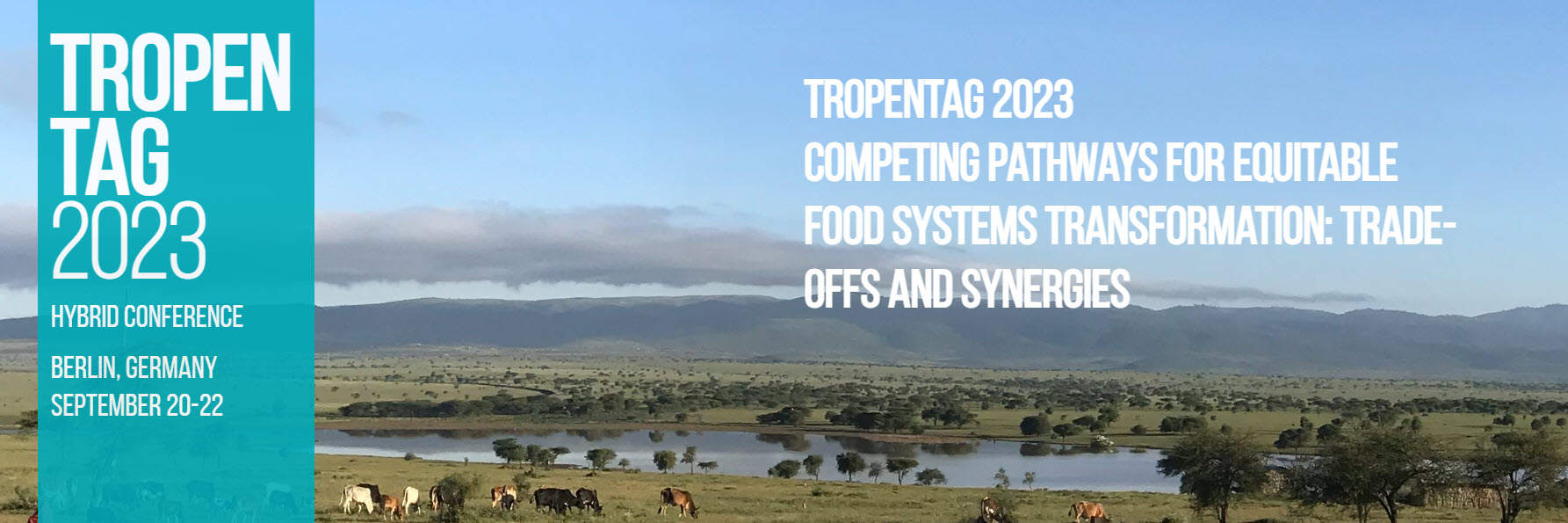


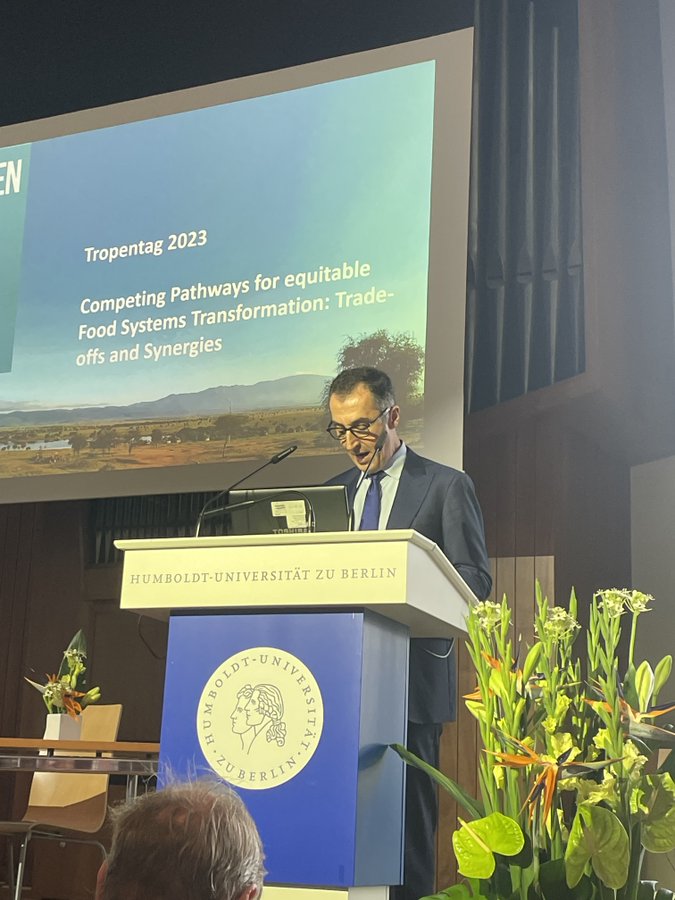



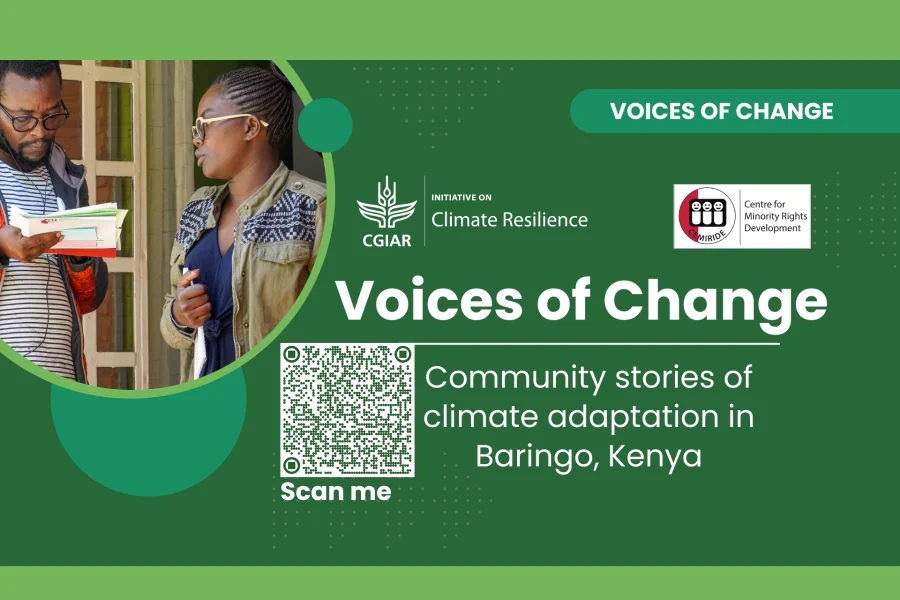
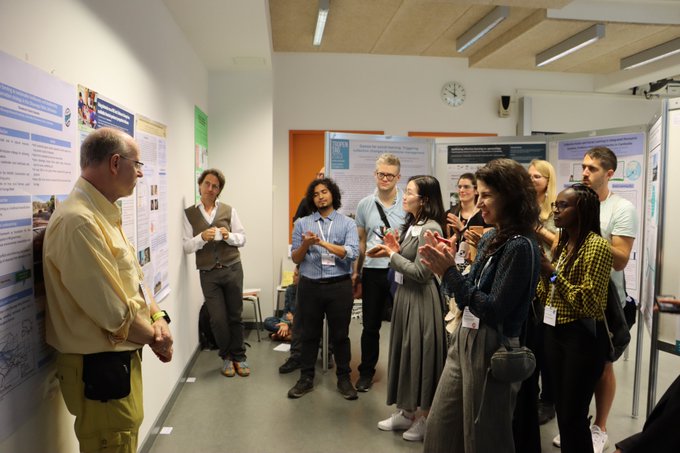
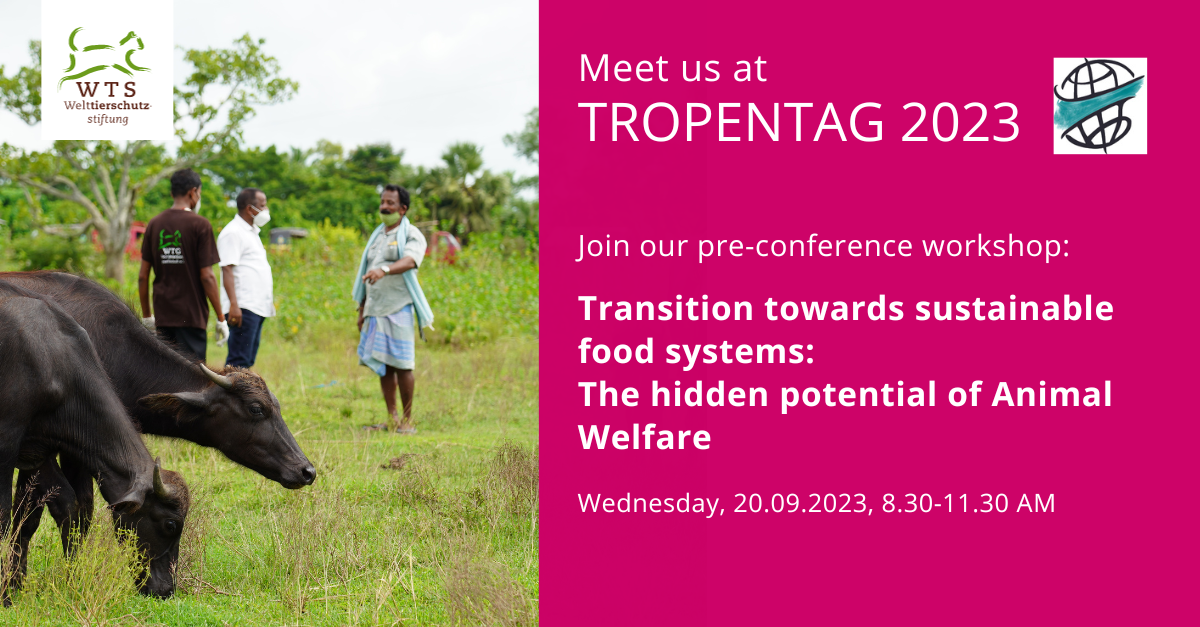
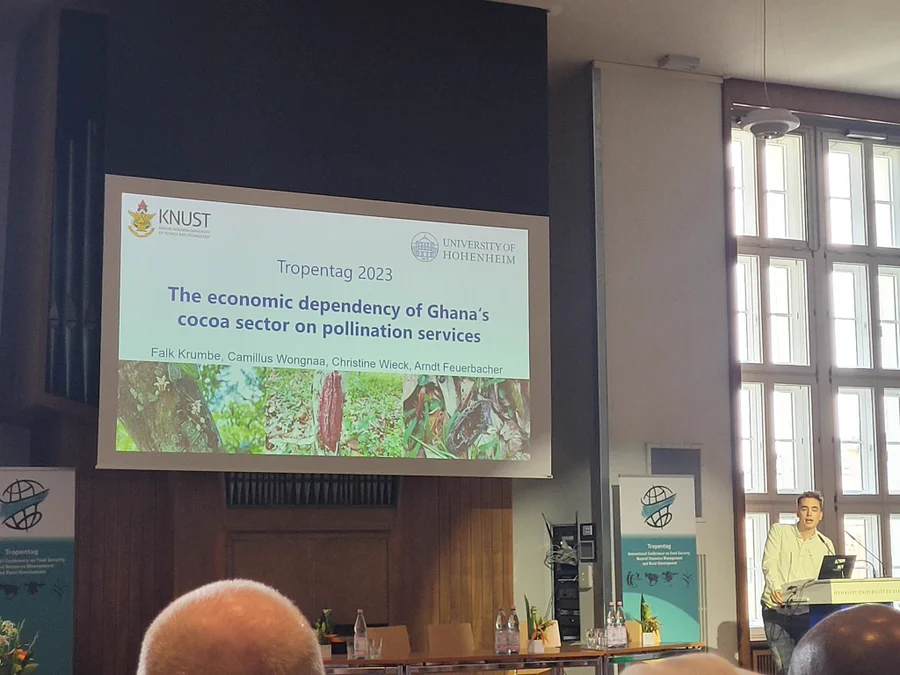

No comments:
Post a Comment